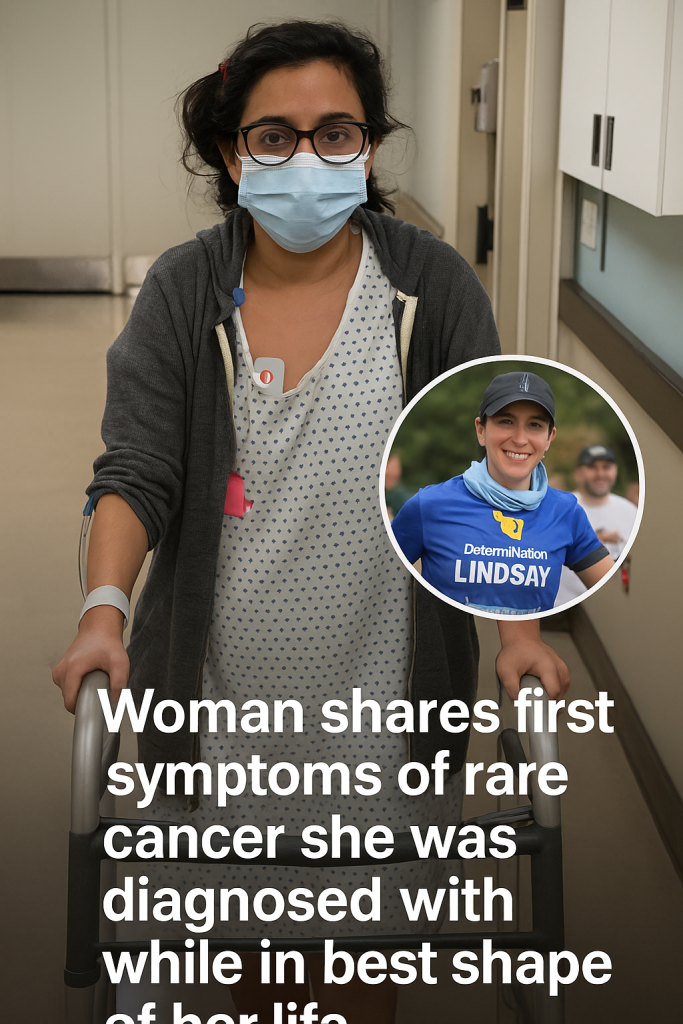Lindsay’s story is a stark reminder of how rare illnesses can masquerade as common symptoms, often leading to delayed diagnoses with profound consequences. Earlier this year, Lindsay, a woman in the prime of her health, was diagnosed with a rare form of cancer after months of doctors initially dismissing her symptoms as something less severe.
In early 2024, Lindsay began experiencing subtle but persistent symptoms that didn’t align with her otherwise healthy lifestyle. Despite feeling strong and energetic, she noticed unusual fatigue and intermittent pain that she initially brushed off. When she finally sought medical advice, these early signs were misattributed to stress, minor infections, or other common conditions. This misdiagnosis is not uncommon, especially when symptoms are vague and patients appear outwardly healthy.
“I was told it was probably just anxiety or a minor viral infection,” Lindsay recalls. “It was heartbreaking because I knew something wasn’t right, but I was also told to just rest and hydrate.”
It was only after her condition worsened—marked by more pronounced pain and other alarming symptoms—that Lindsay demanded further investigation. Advanced diagnostic tests, including imaging and biopsies, uncovered a rare and aggressive form of cancer that had already progressed. This diagnosis was a shock, given her previous health assessments and active lifestyle.
The type of cancer Lindsay was diagnosed with is known for its subtle onset and rarity, which can confound even experienced clinicians. Experts note that rare cancers often evade early detection because their symptoms overlap with those of benign conditions. Lindsay’s experience underscores the critical need for heightened awareness and vigilance among healthcare providers when patients report persistent, unexplained symptoms.
In response to her diagnosis, Lindsay has become an outspoken advocate for patients who feel dismissed by the medical system. She shares her journey openly on social media and in support groups, encouraging others to trust their instincts and seek second opinions if symptoms persist.
“If something feels off, keep pushing,” she advises. “Don’t let anyone convince you it’s all in your head. Early detection saved my life’s direction, even if it didn’t come as early as I hoped.”
Lindsay’s story resonates deeply, especially among those who have faced similar challenges. It highlights a broader healthcare issue—the difficulty in distinguishing rare diseases from common ailments during early stages. Medical professionals are urged to balance caution with curiosity and to consider rare diagnoses when symptoms don’t resolve as expected.
Currently, Lindsay is undergoing treatment tailored to her diagnosis with a team of specialists focused on fighting her rare cancer. Her determination and positive outlook remain unwavering, inspiring many who follow her journey.
This case prompts an important conversation about patient advocacy and the vital role of thorough diagnostic practices. While rare cancers remain challenging, Lindsay’s experience advocates for persistence by both patients and caregivers to ensure timely and accurate medical responses.
For those experiencing unexplained symptoms, Lindsay’s story encourages vigilance and self-advocacy as crucial steps toward health and potentially life-saving outcomes.



